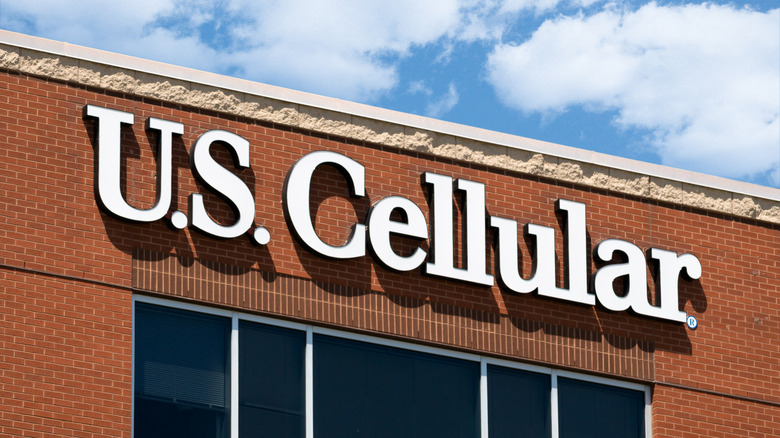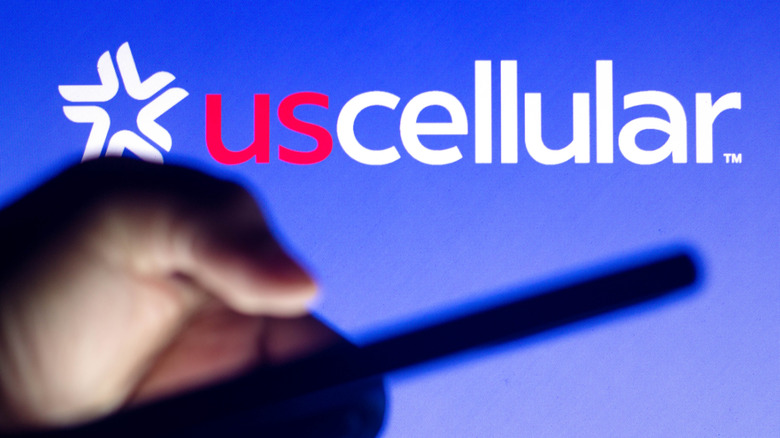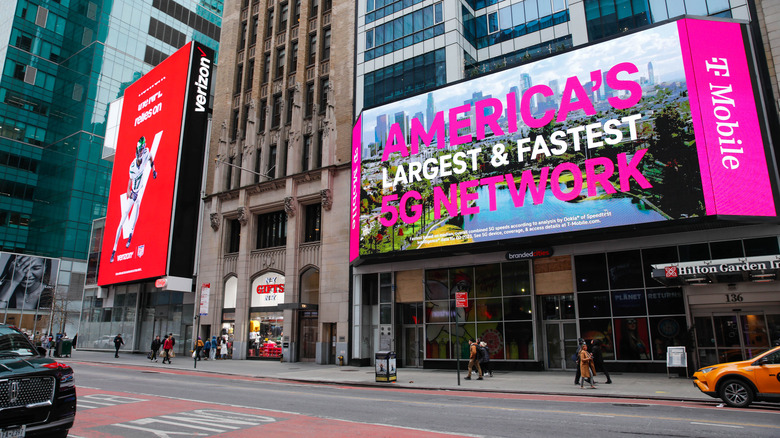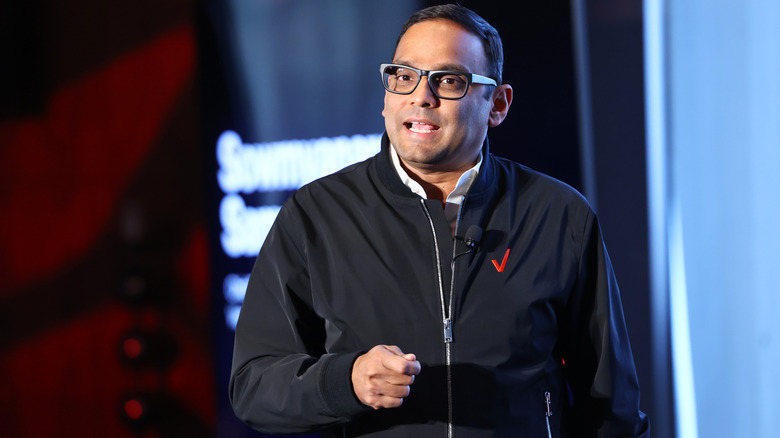What Could Happen If US Cellular Gets Bought Out (And Who Is Going To Buy It)?
For most of the United States, there are three major mobile phone service carriers that maintain their own networks and offer postpaid service: Verizon, AT&T, and T-Mobile. Until 2023, when its customers' post-merger migration to T-Mobile was complete, that also included a fourth carrier, Sprint, which the so-called Un-carrier acquired in 2020. Dish Network is in the process of building its own network for Boost Mobile, which it bought as one of the terms of Sprint merging with T-Mobile, but as most consumers see it today, there are three mobile networks in the United States. Or are there?
There is, in fact, a fourth network in the United States, U.S. Cellular. It's not to be confused with the very similarly-named U.S. Mobile, the inexpensive prepaid mobile virtual network operator or MVNO that's notable for providing a very reasonably priced service on Verizon's network, including priority and premium data in-line with the Verizon-branded service. The reason that you may not have ever heard of U.S. Cellular before is that its coverage is very regionalized. However, if you live in an area serviced by U.S. Cellular, often a rural area that falls into the big three's coverage gaps, then it may actually offer the best quality wireless service you can buy.
That may be changing, though, as according to the Wall Street Journal, U.S. Cellular is in talks with T-Mobile and Verizon to sell itself off for parts. Let's take a look at what all of this could mean for the mobile landscape going forward.
What is U.S. Cellular?
U.S. Cellular is a regional mobile service carrier extending mainly into the pacific northwest, New England, and parts of the midwest and southeast. If you're a U.S. Cellular subscriber, outside of its limited coverage areas, then you rely on its roaming agreements with the three larger carriers. However, unless you live in a region where the company has a foothold, you're unlikely to have heard of U.S. Cellular, much less have reason to subscribe to its service. If you do live in a region well-served by the smaller carrier, then its service is reported to be as good as or better than what the three larger carriers offer in those areas.
The idea that U.S. Cellular was considering a sale first went public in August 2023, when it announced in a press release that it was looking to "explore strategic alternatives." This is classic business speak for seeking out a merger or acquisition. "The U.S. Cellular leadership team and I fully support the decision to review strategic alternatives for U.S. Cellular," said CEO Laurent Therivel. "We will remain focused on executing our plan and fulfilling our mission of connecting people to what matters most."
A month later, T-Mobile CEO Mike Sievert was asked at the Goldman Sachs Communacopia + Technology conference if the U.S. Cellular news could play into his company's strategy for expanding into rural areas. "Maybe, but I like our Plan A a lot," he replied according to Cord Cutters News, adding that the hurdles for M&A would be high.
Who's trying to buy U.S. Cellular and why?
On May 9, 2024, The Wall Street Journal said that Verizon and T-Mobile were in negotiations to carve up U.S. Cellular, each making separate deals where they would buy large chunks of the regional carrier's business and wireless spectrum. As per that report, the T-Mobile deal could be completed within weeks, with the so-called Un-carrier spending $2 billion to take over "some operations and wireless spectrum licenses." Verizon, meanwhile, hasn't got nearly as far in its talks according to the report, and could take longer for a deal to be made, if there ends up being one at all. When reached for comment by Ars Technica the next day, both T-Mobile and U.S. Cellular refused to comment.
As explained by the Journal, the reason that neither of the top two mobile carriers in the United States would be looking to buy U.S. Cellular outright is because the regulatory hurdles for the acquisition would be too high. Since the Federal Communications Commission's authority to auction off new wireless spectrum expired in March 2023 and has not been renewed, existing spectrum has been at a premium. So, with the big three carriers looking to pick up new spectrum to further build out their high-speed 5G networks, buying the likes of U.S. Cellular looks like an awfully good way to get that done.
The potential deal might not be just about spectrum
Five days after the Wall Street Journal report, a Bloomberg interview with Verizon CEO Sowmyanarayan Sampath suggested that there was more to the U.S. Cellular talks than just spectrum acquisition. "I want to buy that back — I've been quite open about it," Sampath said of a stake that U.S. Cellular owns in Verizon's subsidiary that covers the Los Angeles metropolitan area. "But it has to be at a price that makes sense for us." He further explained that while it's not the only Verizon operation that U.S. Cellular owns part of, it stood out from the rest because "Los Angeles is the vast majority of the business."
"For almost 20 years, we have said we are interested in buying it back," he continued. "We're always open to that. That's the chunk we like. That's the piece we like because we're buying back something we know very well." Reached by Bloomberg, a U.S. Cellular spokesperson elected not to comment on Sampath's expressed desire to buy back their share of the Los Angeles operation. According to public filings reviewed by Bloomberg, U.S. Cellular holds 5.5% of the Los Angeles SMSA Limited Partnership and Subsidiary, which Verizon manages, and it brought in about $65 million for the regional carrier in both 2022 and 2023.
Whatever happens next, it seems that U.S. Cellular will continue to exist in some form. The Wall Street Journal story noted that the company has 4,000 towers that aren't part of the sale talks, after all.



